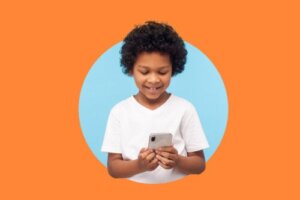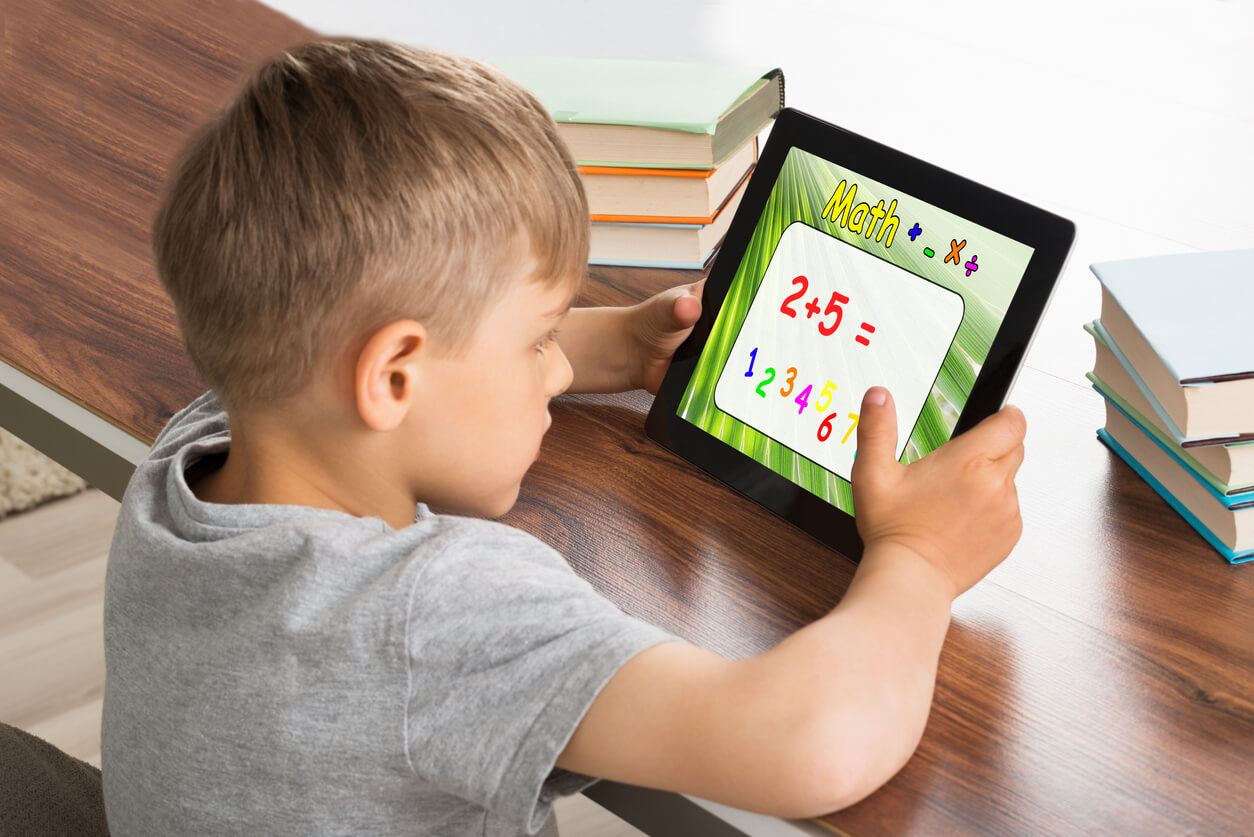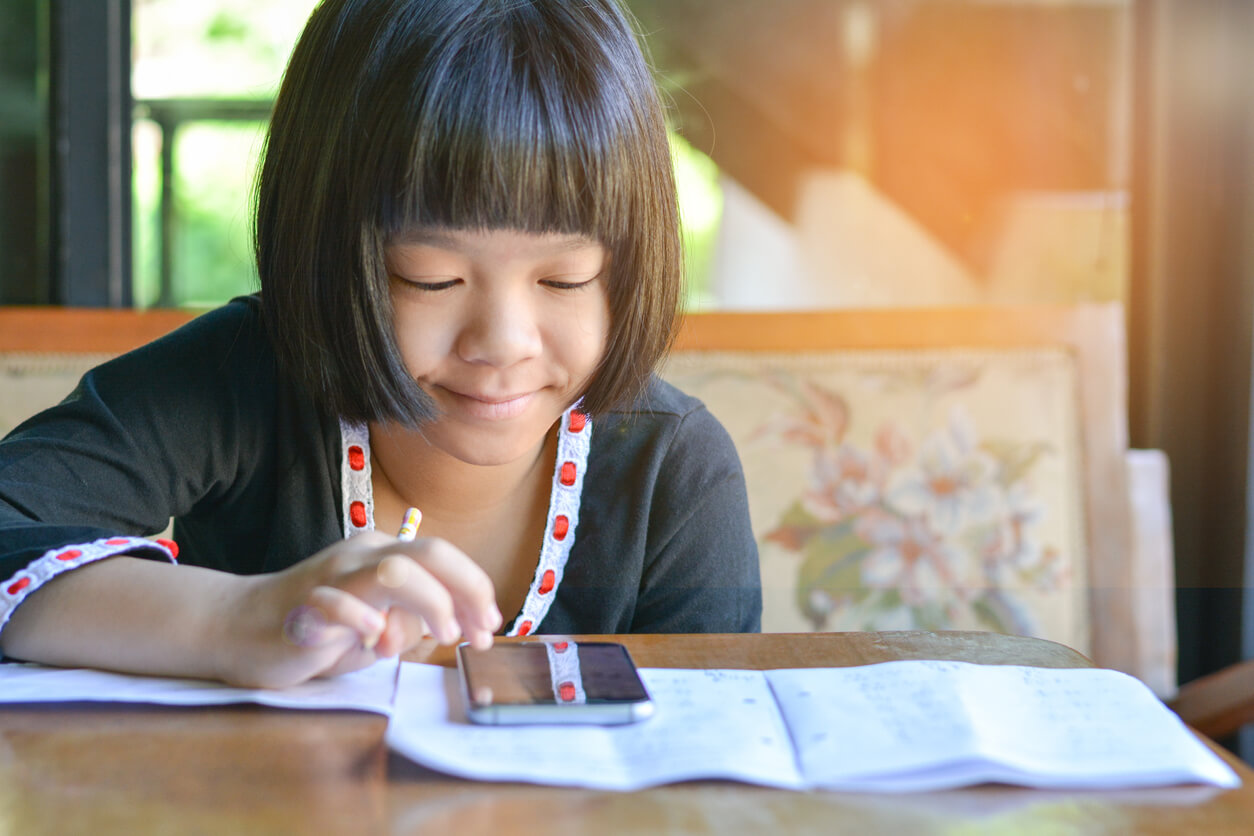6 Apps for Children with ADHD


Written and verified by the psychologist Elena Sanz Martín
Today’s children are digital natives. They understand and handle technologies with ease and enjoy them enormously. Although many parents worry about the use their children make of electronic devices, they can also become great allies in their education. By choosing the appropriate content, apps can help children work on their cognitive and attentional difficulties, especially if they have ADHD.
We can’t lose sight of the fact that attention deficit hyperactivity disorder (ADHD) is one of the most common disorders in childhood. In fact, it’s estimated that it can affect 3 to 7% of children worldwide. The difficulties associated with this condition can have a negative impact on a child’s life, whether in school, family, or social settings. Therefore, applications aimed at this group of children and adolescents are a valuable support to accompany their treatment. Do you want to know more about them?
These are the 6 best apps for children with ADHD
There are many applications on the market that allow you to work on and exercise memory, concentration, and emotional management. However, today we’ll focus on those that are especially relevant for children with ADHD because they’re complete and enjoyable. After all, the main objective is for children to exercise their minds while having fun. Pay attention to the following options!
1. ADHD Trainer
This application was developed by child psychiatrist Kazuhiro Tajima with the intention of cognitively stimulating these children. For this purpose, he designed the TCT method, which consists of a brief daily training, lasting about 10 minutes, in which key areas are worked on: Attention, memory, reasoning, planning, and impulsivity.
Visually, the ADHD Trainer is eye-catching and attractive for children, as it presents colorful graphics, music, and varied activities. In addition, it offers an individualized plan that’s adjusted to the results obtained by the child. In addition, it allows the performance in each area to be compared with that of other children of the same age. It can be used between 5 and 12 years old.

2. Focus Trainer
Focused on working on selective attention, this application offers a fun game in which children must pass levels of varying difficulty. Fireflies appear on the screen and must be caught when they’re placed on the target. Undoubtedly, it’s an entertaining and effective activity to help children focus and relax.
3. Jumpy Car ADHD
This technology trains children to focus their attention on a relevant stimulus while ignoring other distractors. To do this, they have to drive a car without brakes and must avoid the different obstacles that appear.
A very positive aspect of Jumpy Car ADHD is that it allows children to learn more about their disorder, what it is, and how to overcome it. After completing each level, dialogue boxes appear between a child (Andy) and a psychologist (Dr. Barks), answering many common questions about this condition.
4. EpicWin
In this task manager, children can design their list of pending activities and set out to complete them with a very particular motivation. The app lets you create an avatar that gains experience, acquires items, and goes on epic adventures as it meets the set goals. Being productive has never been so much fun!

5. iRewardChart
This app uses positive reinforcement to motivate children to complete their assignments. In this way, parents are freed from having to insist and nag their little ones to fulfill their obligations.
In iRewardChart, you can create a table of tasks and a series of rewards that the child will be able to access once they’ve achieved a sufficient number of gold stars. To achieve this, the child only has to complete the selected activities.
6. Avokiddo Emotions
Our last suggestion presents a series of cute animals that experience different moods and with which the child must interact. It’s a free-style game, without rules or objectives, in which the child must explore the different emotions and their associated expressions.
Technology can be a virtual therapy for children with ADHD
What do you think of these suggestions? As you can see, there are a multitude of alternatives, and all of them are fun and educational. With just a few minutes a day, your child will be able to make significant progress in their main areas of difficulty. They’ll be able to work on different cognitive aspects, organize themselves to accomplish their tasks, and improve their emotional management. And the best part is that they’ll do it through play.
However, it’s critical to choose evidence-based and research-based options to ensure that they can meet the demands of this specific group of children.
Today’s children are digital natives. They understand and handle technologies with ease and enjoy them enormously. Although many parents worry about the use their children make of electronic devices, they can also become great allies in their education. By choosing the appropriate content, apps can help children work on their cognitive and attentional difficulties, especially if they have ADHD.
We can’t lose sight of the fact that attention deficit hyperactivity disorder (ADHD) is one of the most common disorders in childhood. In fact, it’s estimated that it can affect 3 to 7% of children worldwide. The difficulties associated with this condition can have a negative impact on a child’s life, whether in school, family, or social settings. Therefore, applications aimed at this group of children and adolescents are a valuable support to accompany their treatment. Do you want to know more about them?
These are the 6 best apps for children with ADHD
There are many applications on the market that allow you to work on and exercise memory, concentration, and emotional management. However, today we’ll focus on those that are especially relevant for children with ADHD because they’re complete and enjoyable. After all, the main objective is for children to exercise their minds while having fun. Pay attention to the following options!
1. ADHD Trainer
This application was developed by child psychiatrist Kazuhiro Tajima with the intention of cognitively stimulating these children. For this purpose, he designed the TCT method, which consists of a brief daily training, lasting about 10 minutes, in which key areas are worked on: Attention, memory, reasoning, planning, and impulsivity.
Visually, the ADHD Trainer is eye-catching and attractive for children, as it presents colorful graphics, music, and varied activities. In addition, it offers an individualized plan that’s adjusted to the results obtained by the child. In addition, it allows the performance in each area to be compared with that of other children of the same age. It can be used between 5 and 12 years old.

2. Focus Trainer
Focused on working on selective attention, this application offers a fun game in which children must pass levels of varying difficulty. Fireflies appear on the screen and must be caught when they’re placed on the target. Undoubtedly, it’s an entertaining and effective activity to help children focus and relax.
3. Jumpy Car ADHD
This technology trains children to focus their attention on a relevant stimulus while ignoring other distractors. To do this, they have to drive a car without brakes and must avoid the different obstacles that appear.
A very positive aspect of Jumpy Car ADHD is that it allows children to learn more about their disorder, what it is, and how to overcome it. After completing each level, dialogue boxes appear between a child (Andy) and a psychologist (Dr. Barks), answering many common questions about this condition.
4. EpicWin
In this task manager, children can design their list of pending activities and set out to complete them with a very particular motivation. The app lets you create an avatar that gains experience, acquires items, and goes on epic adventures as it meets the set goals. Being productive has never been so much fun!

5. iRewardChart
This app uses positive reinforcement to motivate children to complete their assignments. In this way, parents are freed from having to insist and nag their little ones to fulfill their obligations.
In iRewardChart, you can create a table of tasks and a series of rewards that the child will be able to access once they’ve achieved a sufficient number of gold stars. To achieve this, the child only has to complete the selected activities.
6. Avokiddo Emotions
Our last suggestion presents a series of cute animals that experience different moods and with which the child must interact. It’s a free-style game, without rules or objectives, in which the child must explore the different emotions and their associated expressions.
Technology can be a virtual therapy for children with ADHD
What do you think of these suggestions? As you can see, there are a multitude of alternatives, and all of them are fun and educational. With just a few minutes a day, your child will be able to make significant progress in their main areas of difficulty. They’ll be able to work on different cognitive aspects, organize themselves to accomplish their tasks, and improve their emotional management. And the best part is that they’ll do it through play.
However, it’s critical to choose evidence-based and research-based options to ensure that they can meet the demands of this specific group of children.
All cited sources were thoroughly reviewed by our team to ensure their quality, reliability, currency, and validity. The bibliography of this article was considered reliable and of academic or scientific accuracy.
- Powell, L., Parker, J., Robertson, N., & Harpin, V. (2017). Attention deficit hyperactivity disorder: is there an APP for that? suitability assessment of Apps for children and young people with ADHD. JMIR mHealth and uHealth, 5(10), e7371.
- Narbona, J. (2001). Alta prevalencia del TDAH:¿ niños trastornados, o sociedad maltrecha?.
This text is provided for informational purposes only and does not replace consultation with a professional. If in doubt, consult your specialist.








